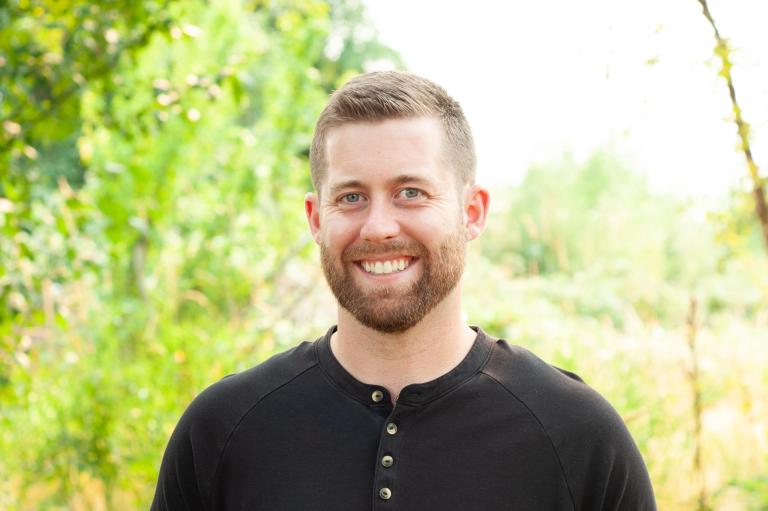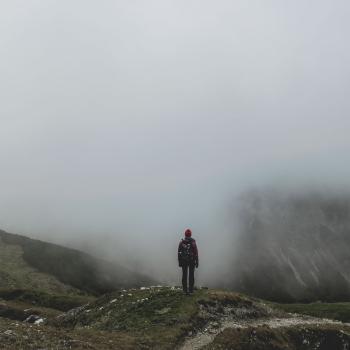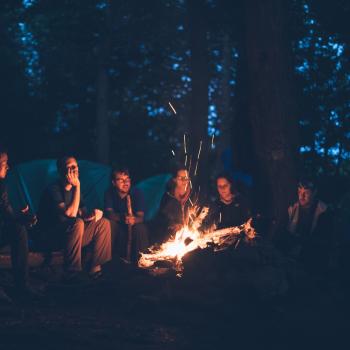
When was the last time you were able to genuinely spend time in nature?
I don’t mean going for a walk or texting as you venture around the local park loop. When I ask this question, I’m referring to the giving of yourself to nature: the experience of having no distractions, no interruptions, and no realization of anything but yourself in the natural world.
It’s rare.
In his book The Great Conversation, Belden C. Lane offers us four ways of relating to the natural world:
1. Relating with Nature As Users
This seems to be the default operating system of most of our culture.
In the Christian church, certainly. On the far right wing, we have dominionist theology which has as its basis the assumption of a “right to use.” In this world, everyone and everything has a space in the hierarchy: humans over nature; the “right” over the “wrong.”
And on the progressive side, we have a theology of “stewardship” that is still fully in the “User” camp.
When we discuss stewardship, we are placing ourselves as benevolent leaders, the ones who will “take care of everything” as we see just and good. There is still no true relationship being cultivated with nature other than a hierarchical, top-down approach. Call it “responsible use” if you will.
2. Relating with Nature as Explorers
At the recent United Methodist Greater Northwest Episcopal Area Annual Conference, the new Bishop Cedrick Bridgeforth raised the question of why young people aren’t coming to church in high numbers anymore.
His response was beautiful and – I think – right on. And it was incomplete.
In his response, he spoke of how the church has become rooted in a “come to us” mentality, entirely disconnected from the concept of exploring the world and getting hands-on in the midst of injustice. He pushed churches to change their posture from “come to us” to “go and get busy.”
But here’s where it’s incomplete.
Bishop Bridgeforth’s response was almost entirely related to issues of justice and injustice. Get busy making change out in the world. But this posture shift will not occur without a shift in the church’s spirituality as it relates to nature.
When one sees nature as “other” from our own humanity, there is little hope to engage in true healing and reconciliation within our species.
When the Universe is seen as fragmented, we will see ourselves as fragmented as well.
And so, to build on Bishop Bridgeforth’s message, I would add this: in order to organize the change we so desperately need, churches must embolden everyone we can to become explorers of the natural world and to see the connectedness of all things.
There can be no radical healing without the de-fragmentation of our Universe.
As a side note: I think many young people get this. This is why they spend their time in nature rather than sanctuaries. Instead of saying “come to us,” churches might take a page out of this book and put their hands to the soil.
From June 26th to June 29th, the award-winning book Unmasking the Inner Critic: Lessons for Living an Unconstricted Life is on sale on Amazon for just $.99 (eBook)!
3. Relating with Nature as Celebrants
Today, I sat at the beach for awhile.
Not in a chair or on a bench; I walked toward the water and found a rock that was already half-submerged with the water coming in. I knew, as turned out to be true, that by the time I left, I would be jumping over the splashing tide in order to stay dry.
And as I sat there on the rock, I simply gazed my eyes out across the water.
I watched as the birds floated by, the fish leaped into the air and back under again, and as the crab pots bobbled in the waves.
After about ten minutes, a harbor seal popped its little head above the water about five yards away from me. I’m not entirely sure it was looking at me, but it felt an awful lot like we were spending some time watching each other. It was a beautiful moment – a celebration of nature witnessing itself.
Because we’re part of nature too. I think we sometimes forget that.
What often keeps us relating to nature as users is the faulty belief that we are somehow entirely separate. When that falsity falls apart, it becomes possible not only to explore nature, but to celebrate it, subject to subject.
Nature witnessing itself in a beautiful and momentary deliciousness.
4. Relating with Nature as Lovers
I’ll admit I’m not sure I know this experience quite yet.
I’ve heard that some people draw so close to their pets they, too, become firmly entrenched in the family dynamic. In this moment, the pet becomes a member of the family, almost on par – and sometimes on par – with the human members.
I like my dog Pez a lot – but I don’t think we’re there yet.
And yet I feel I understand bits and pieces of such an experience.
When I drive past Mount Rainier in the morning, I always turn to it and murmur “Good morning, Grandma Mountain.” It all started when I was going through a rough patch in my romantic relationship and I felt a kindred kindness coming from the mountain.
It’s not quite love…but it’s not quite not love.
There’s a relatability that passes between Grandma Mountain and I, part of what Belden Lane calls the “Great Conversation” of nature seeing nature. I know that my life is mixed up with hers’ and that my health and her health are connected. We are beautifully interdependent on each other and yet independent as well.
As I continue my walk through life, I hope to feel this reciprocity of relationship more often within our natural world – and I hope to feel more and more connected in what Mary Oliver called the “family of things.”
Some questions for readers:
- What’s coming up for you when you read this? Any stories of connectedness with nature?
- How does nature play into your spirituality?
Want practical inner work teachings and resources every week?
Join 471+ folks receiving The Wednesday 1-2-3, my weekly email offering one contemplative and embodied teaching, two questions for your inner work, and three resources to go deeper.













